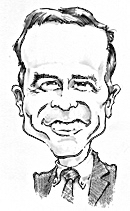what is the tinker test what are the exceptions to it

By Lea Filippi of Sedor, Wendlandt, Evans & Filippi, LLC
Part two of a 4-part review of Freedom of Expression in Schools.
"I'll become you lot, my pretty, and your little dog besides!"
No ane should challenge enemies to a duel, shout "Fire!" in a crowded theater, or threaten their neighbor's niece and her ambrosial terrier. The government tin can limit false advertising and criminalize publishing obscene materials. Simply the First Amendment keeps adults mostly gratuitous to spread the news (both real and "fake"), share bad ideas, and fifty-fifty say mean things to each other.
Things are different at school. To educate students, schools need to be able to command the clamor of voices, straight the chat, and attune the volume of the marketplace of ideas. Not only tin can students be made to raise their hand and wait to be called on in grade, there are even things that students can be forbidden from saying at school at all (or be disciplined for saying if they do).
Final calendar month we began our iv-office series past discussing the spoken language rights of students under Tinker. You can read it hither. This calendar month we explore exceptions to those rights.
Tinker established that the First Amendment does not forestall schools from limiting student speech that materially disrupts class work or involves substantial disorder or invasion of the rights of others. Nether Tinker, whether speech can be barred equally confusing depends on specific circumstances and tin exist tricky to decide. Courts have identified three areas where schools have the latitude to regulate student speech without wading into a detailed analysis of how confusing that spoken language is actually likely to exist.
"Fudge!"
Schools tin can categorically restrict student oral communication that takes a vulgar, lewd, or profane class. In Fraser the court ruled that a school could subject area a student who during a school assembly nominated a classmate for election equally student body vice president in a voice communication filled with sexual innuendo that the school and the court viewed every bit lewd. Following Fraser, students can be forbidden from using four-letter words, disciplined for doodling some of the classics of graffiti, and prevented from laying on the innuendo when they nominate a friend to educatee council.
"How I know that Santa isn't real" — The School Gazette
Another surface area in which schools take authority to regulate speech without a detailed Tinker assay is school-sponsored speech. Students have a certain amount of freedom to speak their listen at school. They can wear black armbands and other symbols of silent protestation and can say (or not say) the Pledge of Allegiance. But information technology'south different when students are not speaking solely for themselves.
The Kuhlmeier instance involved a journalism class newspaper with articles about divorce and teen pregnancy that a school main thought was inappropriate, unsuitable for younger students, and did not meet journalistic standards of fairness. The principal prohibited those articles from being published. A courtroom ruling on a legal challenge to the principal's determination found the school had a legitimate interest in preventing the publication of inappropriate articles in a paper that might announced to have the imprimatur of the school.
Pupil quango bulletin boards and flyers, class newspapers, scientific discipline fair presentations, talent shows, ring and orchestra concerts, yearbooks, and schoolhouse plays. Those can all involve pupil speech communication, but students speaking through those mechanisms can announced to have their schoolhouse's approving, so schools have authority to regulate their content. Schools tin decline to publish materials that acquaintance the school with positions other than neutrality on matters of political or social controversy. Schools tin can prohibit course newspapers from publishing articles on topics like teenage sexual activity or booze use. When making decisions about school-sponsored oral communication, schools can take into business relationship the emotional maturity of the audience. An elementary schoolhouse could, for example, decide non to sponsor a fence on the being of Santa Claus.
"Bong Hits for Jesus"
What does that even mean? Joseph Frederick – the Juneau educatee who wrote those ambiguous words and unfurled them on a banner during an Olympic Torch Relay that his school turned out to watch – couldn't quite say. His chief thought it had to practice with marijuana. She told Joseph to put the banner abroad. He didn't. She confiscated the banner and suspended him from schoolhouse for violating a policy against advocating illegal drug employ. In litigation that went all the mode to the Us Supreme Courtroom, Joseph said the sign was not political, that information technology was simply meaningless and funny and intended to get him on television. Recognizing that schools have an of import, perhaps compelling, interest in deterring drug use, the Courtroom sided with the principal and confirmed that schools tin restrict at school (and school events) student spoken communication that can reasonably be viewed equally promoting illegal drug utilize.
Together these cases establish that while limits on student speech are generally subjected to a Tinker analysis asking how reasonable information technology was to call up speech communication restricted by a school would materially disrupt classwork or cause disorder or invasion of the rights of others, in that location are exceptions when that detailed assay does not apply. Schools tin can regulate school-sponsored speech in means reasonably related to legitimate educational concerns. Schools tin too prohibit students from using linguistic communication that is vulgar, lewd or profane or might reasonably be interpreted as advocating illegal drug use without whatsoever detailed showing of the likelihood of disruption.
Read the unabridged series onFreedom of Expression in Schools

Office four: "Can nosotros offset our school board meetings with a prayer?"
By Clint Campion
# # #
The views expressed hither are the writer's and are not necessarily endorsed past the Association of Alaska Schoolhouse Boards. AASB welcomes diverse perspectives and civil discourse. To submit a Invitee Column for consideration, see our Guest Cavalcade Guidelines and email your 400-chiliad word submission Here.
Source: https://aasb.org/exceptions-to-student-speech-rights-under-tinker/
0 Response to "what is the tinker test what are the exceptions to it"
Post a Comment